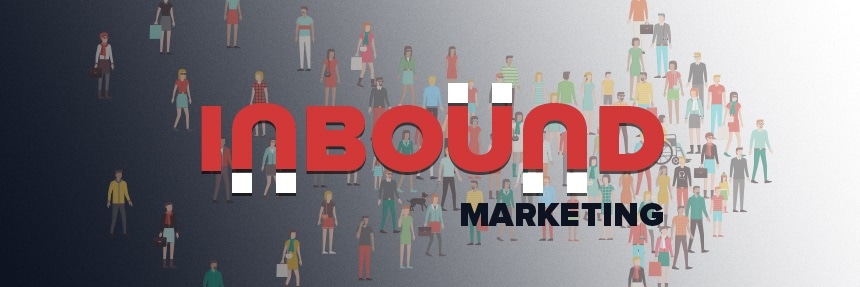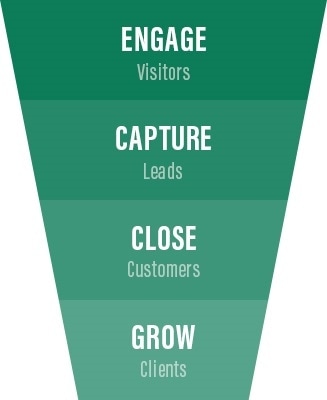
Billboards, TV commercials, postcards, brochures, coupons and newspaper adverts; we are all familiar with traditional Marketing activities and their ultimate goal of promoting products and services.
However, with traditional marketing channels you know the odds of success aren't great. In fact, a response rate of 3 percent provides reason to celebrate.
"Half the money I spend on advertising is wasted, the trouble is I don't know which half!" - John Wannamaker
Since the early 1900s, store owners and merchandisers like John Wannamaker were struggling to accurately attribute where his most succesful marketing efforts came from. For over 100 years brands have continued to hit and hope with their marketing efforts, sending messages out there to be heard, seen and remembered ...or not, we simply could not tell!
Over a century later, things are finally beginning to change. Let's recast the marketing paradigm and turn to the indisputably more effective marketing strategy of inbound marketing.
Inbound vs. Interruption Marketing
To fully appreciate this exciting marketing strategy, contrast it with all those postcards, brochures, coupons and other “outbound” marketing efforts. (These tactics are also referred to as “interruption marketing” because the message attempts to interrupt people from what they're doing. TV and radio commercials serve as the best example, they interrupt the content you are viewing and ask for your attention)
As its name suggests, inbound marketing denotes a change of direction. Instead of sending out information that you hope happily interrupts people and focuses their attention, inbound marketing brings new customers to you with engaging content. It can do so at a mere fraction of the cost of traditional marketing methods and primarily through content creation on your website.
"Online platforms now allow you to quantify and measure just how effective your Inbound campaigns really are."
Why Inbound Marketing is “In”
The goal of inbound marketing, as Forbes describes it, is to “get found” or “get spotted” by potential customers. The means to this end is “creating and providing valuable content for your customers, promoting your remarkable content, building customer relationships and overall 'pulling' the customer toward you.” Furthermore, given the copious amounts of data being collected online nowadays, you can now measure just how effective your inbound campaigns really are!
The caveat? Only original, high quality content will do. Provide value to all of your readers - You want to be found by:
-
Engaged Visitors - Not everyone will have heard of you straight away (which is fine) some of your efforts should be focused on generating awareness to a broader public.
-
Potential Prospects - Look to answer more specific questions and solve your prospect's problems.
-
Existing Customers - Strengthen existing relationships by sharing your expertise in other areas.
The Verdict is "In"
Many business owners, marketing managers and other professionals already see the value of inbound marketing. Hubspot's seventh annual report on inbound marketing—the sum total of interviews with nearly 4,000 B2B, B2C and nonprofits from around the world—finds that:
-
Three out of four marketers say that inbound marketing is their most important and effective marketing activity. About the same number (76 percent) are increasing their investment in content marketing.
-
Small businesses in particular are gravitating to inbound marketing, with 84 percent relying on the strategy to generate greater profit.
Four stages of the inbound buyer's journey
A successful inbound marketing strategy requires four steps: engaging, capturing, closing and growing potential customers.
-
You attract and Engage visitors with a high quality blog, infographic or well written web pages, with each one built around specific keywords.
-
Capture vital data from people who provide their contact information. Use a compelling call to action, such as a complimentary service or product.
-
Close your customers with emails and other marketing outreach efforts tailored to their expressed interests (and continue to track the results with customer relationship management tools).
-
Grow your client's accounts (keep them happy!) by sending relevant, related content which adds value.
Inbound Marketing is applicable across all sectors and industries simply because people go online nowadays. Contact us to discuss an inbound marketing strategy based around your scientific or industrial niche and revolutionize your marketing campaigns.